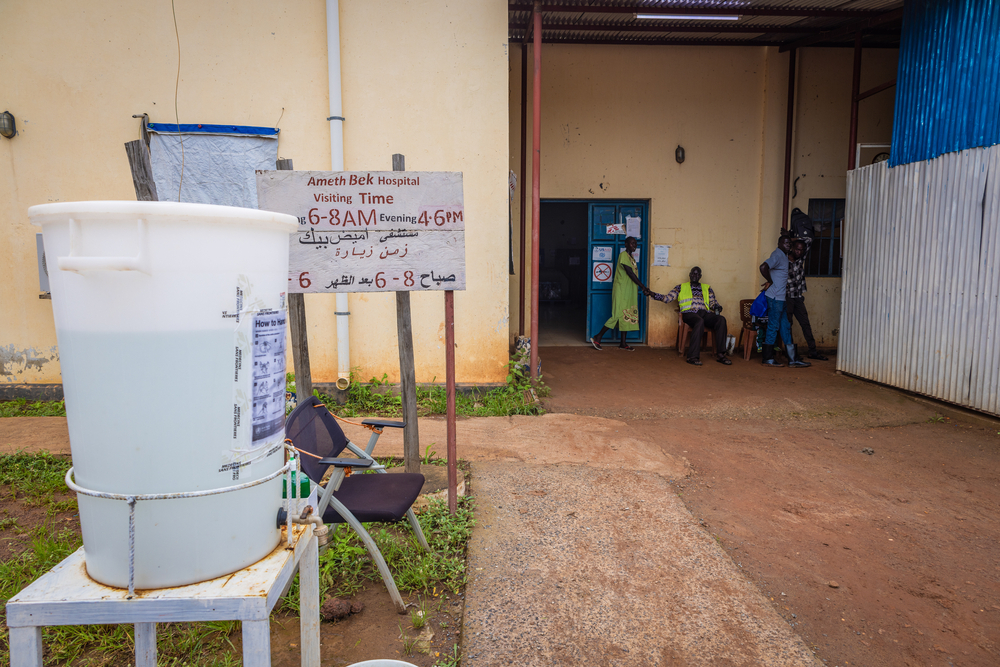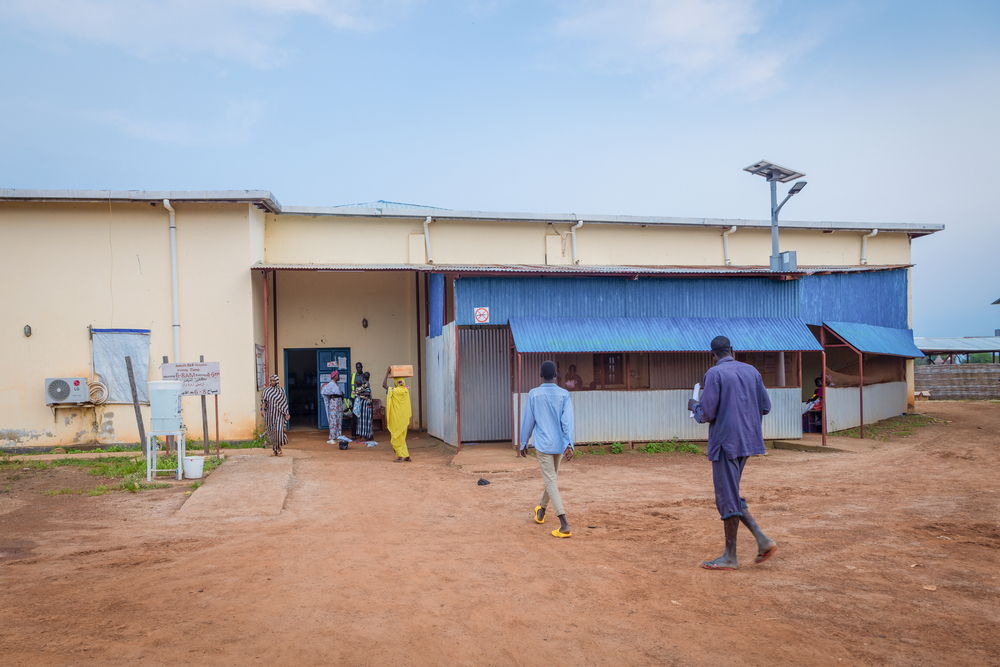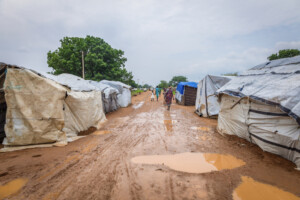A water, sanitation, and hygiene crisis is unfolding in Abyei, which is claimed by both Sudan and South Sudan*, fuelling an ongoing hepatitis E outbreak, international medical relive organisation Médecins Sans Frontières (MSF) warns in a statement yesterday. Poor sanitation, severe water shortages, and inadequate infrastructure are exacerbating the spread of the virus through contaminated drinking water, placing thousands at risk, MSF say.
“In July 2024, health authorities in Abyei* declared an outbreak of hepatitis E**, since then 41 cases have been reported, resulting in six deaths (a 16 per cent case fatality rate), including five women, of whom three were pregnant, and one male,” the MSF statement says.

“The situation has worsened due to the influx of over 22,000 people crossing the border into Abyei since the beginning of the conflict in neighbouring Sudan.” MSF underscores that “the incessant movement of internally displaced people and refugees significantly increases the risk of hepatitis E transmission in the region,” while MSF has faced barriers to diagnose the disease due to a shortage of rapid detection tests.
“Currently, we have four patients in the isolation ward, but the situation is fluctuating, and we urgently need wash and sanitary infrastructures to prevent further deaths,” says Zélie Antier, MSF project coordinator in Abyei.
Since violent conflicts erupted in February 2022 in and around Agok, an estimated 70,000 people were displaced, with many seeking refuge in Abyei. The influx of displaced people has put an additional pressure on the limited services that were available for the already fragile communities, with over 85 per cent of people in need of humanitarian assistance.

In Amiet market, about 14 kilometres from Abyei town, more than 900 refugees, returnees from Sudan, and internally displaced people live in overcrowded and unsanitary conditions. “Here, hepatitis E has been particularly deadly – more than half of the total hepatitis E cases were people living in the Amiet market. With an estimated 20,000 people nearby and no available latrines, people are forced to practice open defecation, further contaminating water sources and worsening the virus’s spread,” MSV says.
On August 22, approximately 250 families were displaced from the Abyei surroundings to Abyei town. Elizabeth Chatek, who arrived after her home was flooded, said, “We don’t have latrines. I have to defecate in the bushes, and my children use a bowl near the shelter.” Privately owned latrines charge up to SSP 1,000 SSP (around $0.20) per use, a cost too high for Elizabeth’s family and many people in Abyei.
In Abyei town and Amiet market, a 20-litre jerrycan of water costs 500 SSP, a price many families can’t afford. Displaced families have told MSF that rising inflation will soon make clean drinking water out of reach.
In one of Abyei’s secondary healthcare facilities, as of 12 September, MSF says it had provided supportive care services for 41 patients for hepatitis E at Ameth Bek Hospital and increased health promotion activities targeting pregnant women and new mothers to raise awareness about disease prevention.
As the ongoing rainy season continues to cause widespread flooding and threatens drinking water sources and drainage systems overflow, the risk of hepatitis E and other waterborne diseases such as cholera is at stake. Flooding is expected to worsen within the coming weeks with experts predicting extreme riverine flooding and flash floods.
“We urgently call on international donors and aid organisations to scale up their efforts by improving sanitation and providing clean drinking water in Abyei Special Administrative Area,” says Zélie Antier.
* Since the secession of South Sudan from Sudan in 2011, both countries claim the border area of Abyei. The oil-rich region is inhabited primarily by members of the South Sudanese Dinka Ngok clan. It is also the seasonal home of the Sudanese Arab Misseriya herder tribe. The Abyei status referendum, in which the residents of the region would decide either to remain part of Sudan or become part of South Sudan, was planned to be held simultaneously to the South Sudanese independence referendum in January 2011, but was postponed indefinitely because of disagreements over the process.
** Hepatitis E
Hepatitis E is an inflammation of the liver caused by infection with the hepatitis E virus (HEV). Every year there are an estimated 20 million HEV infections worldwide, leading to an estimated 3.3 million symptomatic cases of hepatitis E. WHO estimates that hepatitis E caused approximately 44 000 deaths in 2015 (accounting for 3.3% of the mortality due to viral hepatitis). The virus is transmitted via the fecal-oral route, principally via contaminated water. Hepatitis E is found worldwide, but the disease is most common in East and South Asia. A vaccine to prevent hepatitis E virus infection has been developed and is licensed in China, but is not yet available elsewhere. (Source: WHO)
The post MSF: Water, sanitation, hygiene crisis fuelling Abyei Hep-E outbreak appeared first on Dabanga Radio TV Online.
Source: dabangasudan











